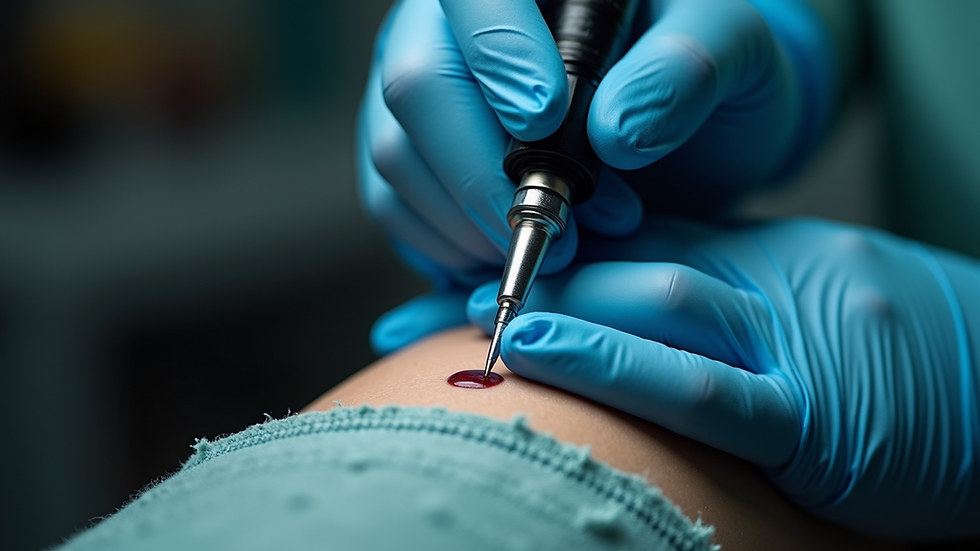Is Medical Tattoo School Easy to Do If You Don't Have Experience?
- Bianca Cypser
- Feb 22, 2024
- 2 min read
Embarking on a journey into the world of medical tattooing can be both exciting and daunting, especially for those who come with little to no experience in tattooing or the medical field. With the growing interest in medical tattoo courses, many aspiring artists wonder about the ease of navigating through medical tattoo school and mastering skills such as scar camouflage training, areola tattoo training, and stretch mark camouflage training. Let's delve into what it really takes to succeed in medical tattooing and whether being a novice can be an obstacle or an opportunity.
Understanding Medical Tattooing
Medical tattooing encompasses a range of procedures designed to heal and beautify the skin, including scar camouflage, areola restoration post-mastectomy, and the blending of stretch marks. Unlike traditional tattooing, which often focuses on aesthetic and artistic expression, medical tattooing requires a nuanced understanding of skin types, color theory, and the psychological impact of bodily changes on clients.
The Foundation of Medical Tattoo Courses
Medical tattoo schools offer specialized courses tailored to equip students with the necessary skills and knowledge. A comprehensive medical tattoo course covers not just the practical application of pigments but also anatomy, hygiene standards, color theory, and client consultation techniques. These courses are structured to cater to beginners, with no prior experience required to enroll.
The Journey for Beginners
For novices, the thought of delving into medical tattooing might seem overwhelming. However, the key to mastery lies in commitment, consistency, and motivation. Here's how beginners can navigate their educational journey:
Commitment to Excellence: Embarking on a medical tattoo course demands dedication. It's not merely about passing exams but embracing the depth of learning and striving for excellence in every procedure you learn.
Consistent Practice: Like any form of art or medical practice, medical tattooing requires regular practice. From perfecting your needlework to mastering pigment mixing, consistent practice is non-negotiable.
Positive Mindset: The learning curve can be steep, but maintaining a positive outlook is crucial. Each challenge is an opportunity to grow and refine your skills.
Self-Motivation: Being a self-starter is invaluable in this field. The drive to learn, practice, and improve even outside the classroom setting will set you apart.
Seeking Feedback: Constructive criticism from instructors and peers is a goldmine for improvement. Embrace it and use it to enhance your technique.
The Role of Support and Resources
Access to quality resources and a supportive learning environment can significantly ease the journey for beginners. Many medical tattoo schools provide extensive hands-on training, dummy skins for practice, and mentorship from experienced professionals. These resources are pivotal in bridging the gap between novice and expert.
Conclusion
Is medical tattoo school easy for someone without experience? The answer lies in the individual's approach. With a steadfast commitment to excellence, consistent practice, a positive mindset, and self-motivation, even beginners can excel in the field of medical tattooing. The journey might not be easy, but with the right attitude and support, it's certainly possible to achieve mastery in medical tattooing, transforming lives one tattoo at a time.
By integrating keywords such as medical tattoo school, medical tattoo course, medical tattooing, scar camouflage training, areola tattoo training, and stretch mark camouflage training, this article aims to provide an SEO-friendly overview for those considering a career in this transformative field.











Comments